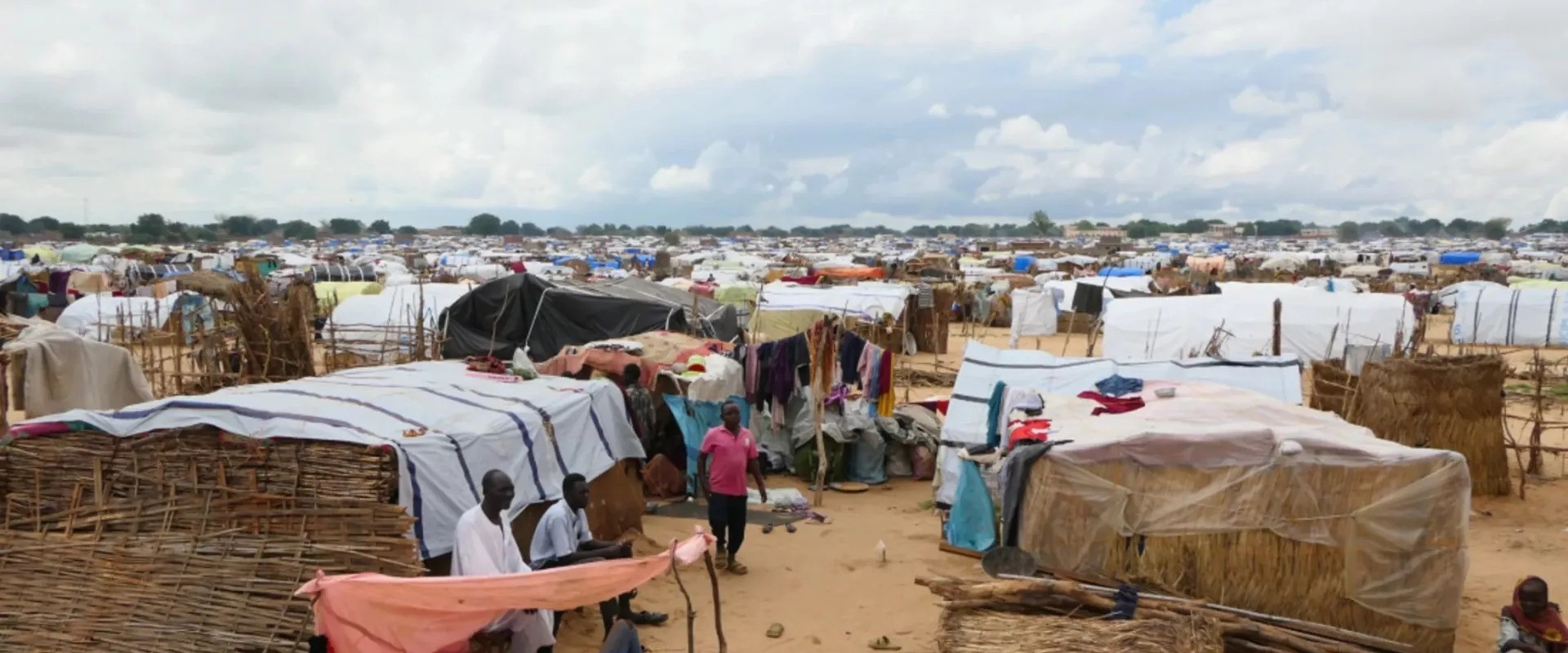It’s been one year since civil war broke out in Sudan, and the crisis has caused one of the world’s biggest displacement crises. Over 8.5 million Sudanese have been forced to flee their homes, and 1.8 million have crossed borders, including into South Sudan and Chad. The war continues to rage on, forcing people to seek shelter and safety in countries ill-equipped to respond to take on the emergency.
Chad is especially impacted by the influx of refugees. Over 570,000 have fled across the eastern border. Although refugees look for a reprieve from the fighting and hunger, Chad is also burdened with food insecurity and humanitarian aid is insufficient throughout the country. It is urgent to reinforce the humanitarian response throughout the country as the lean season (the months between harvests) approaches.
3.4 million people are currently facing a hunger crisis in Chad. The number of severe acute malnutrition cases expected between last October and September 2024 is close to 480,000 children. That is roughly 15% more than last year. The host provinces of eastern Chad, notably Sila and Ouaddaï, are among the country’s most vulnerable areas, with poor access to basic services, and the arrival of refugees is drastically exacerbating needs.
“88% of refugees are women and children. In the Zabout camp alone, the rate of severe acute malnutrition in children under five is 1.9%,” said Henri-Noel Tatangang, Action Against Hunger’s Country Director for Chad. “This is an alarming figure, given that the World Health Organization’s emergency threshold is 2%. But Chad is experiencing a major humanitarian crisis throughout all its territory.”
From May onwards, the humanitarian situation is likely to deteriorate even further. The arrival of the rainy season and the lean season will increase needs and, at the same time, make it harder for humanitarian workers to access hard-to-reach populations.
A lack of funding has largely compromised humanitarian response, particularly food distributions. To date, only 4.5% of the humanitarian response plan for the whole country has been financed.
“For Action Against Hunger, it is urgent that donors guarantee sustainable funding for the humanitarian response, and in particular for food distributions throughout Chad, in order to support the most vulnerable populations in the country,” said Tatangang.


